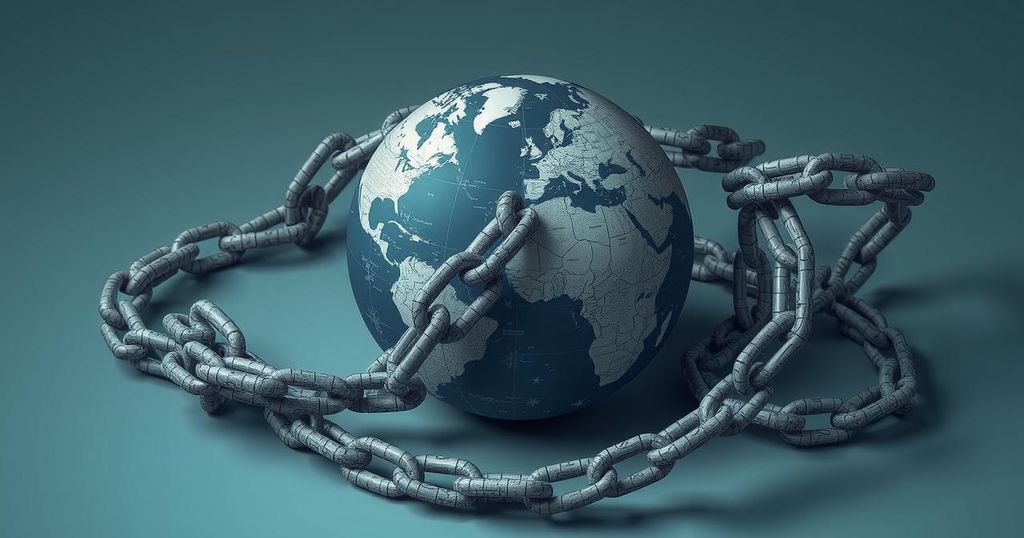Iran has rejected the European Troika’s call to activate the snapback mechanism of the 2015 nuclear deal, citing their failure to meet obligations under international agreements. Both Iran and Russia assert that claims regarding snapback sanctions are baseless and void without legal standing. The ongoing tensions raise the potential for diplomatic crises if negotiations continue to stall, particularly surrounding issues of sanctions and compliance with the JCPOA.
Iran has firmly rejected the European Troika’s (UK, France, Germany) attempts to activate the snapback mechanism linked to the 2015 nuclear deal. Iran argues that these countries lack both legal and moral authority to invoke such measures, given their failure to fulfill their own commitments. Mohsen Naziri-e Asl, Iran’s representative to international organizations, highlighted their violations of UN Security Council Resolution 2231 and the Joint Comprehensive Plan of Action (JCPOA), declaring their claims as baseless.
During his address at the International Atomic Energy Agency (IAEA) Board of Governors meeting, Naziri-e Asl conveyed Iran’s commitment to non-proliferation and affirmed that Iran has not pursued nuclear weapons. Despite adhering to the JCPOA, Tehran has observed no substantial results from its compliance. He emphasized Iran’s readiness to restore commitments only if the United States and Europe lift sanctions in a verifiable manner.
In a related commentary, Russia echoed Iran’s stance, with Mikhail Ulyanov, the country’s ambassador to the IAEA, dismissing the European Troika’s snapback claims as illegitimate. He urged these nations to abandon their misconceptions about reinstating sanctions and called for focusing on diplomatic avenues instead. Ulyanov emphasized that the JCPOA represents a delicate diplomatic balance that necessitates respect from all parties.
Ulyanov noted the U.S. withdrawal from the JCPOA in 2018 marked a significant violation of Resolution 2231, arguing that Europe failed to counter U.S. sanctions, aligning themselves with Washington instead. He asserted that Iran has demonstrated maximum patience by complying with JCPOA obligations, and any escalation in Western pressure could jeopardize the prospects for diplomacy.
As discussions continue regarding the snapback mechanism, the historic context illustrates the ongoing tension. Under the mechanism, sanctions could be reinstated, compelling Iran to cease uranium enrichment. Furthermore, the European Troika’s recent IAEA resolution demanding a detailed nuclear activities report by Spring 2025 has exacerbated these tensions, with Tehran interpreting it as an antagonistic gesture.
Iran has cautioned that a complete reinstatement of the snapback mechanism might provoke the country to withdraw from the Treaty on the Non-Proliferation of Nuclear Weapons (NPT), as expressed by Iranian diplomat Majid Takht-Ravanchi after recent talks in Geneva with European representatives. Iran remains engaged in diplomatic discussions while clearly stating its demands for sanctions relief as a requirement for renewing its commitments under the JCPOA.
The recent developments surrounding the snapback mechanism reveal a complex interplay of legal and diplomatic challenges in the JCPOA framework. Iran firmly maintains that the European Troika lacks the authority to invoke the mechanism, citing violations of international agreements. Russia supports Iran’s claims and urges for diplomatic solutions, highlighting the necessity of respect for existing agreements. As the dialogue continues, the implications of reinstating snapback sanctions loom large, potentially impacting Iran’s position on the NPT.
Original Source: www.tehrantimes.com




